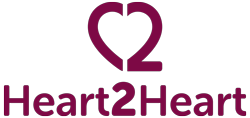COVID-19 coronavirus latest update from the British Congenital Cardiac Association
COVID-19 (Corona Virus): Vulnerable groups with congenital heart disease
 Congenital heart disease is a general term for a range of birth defects that affect the normal way the heart works. The term “congenital” means the condition is present
Congenital heart disease is a general term for a range of birth defects that affect the normal way the heart works. The term “congenital” means the condition is present
from birth.
On 16 March 2020 the UK Government issued new guidance on social distancing for many vulnerable patient groups.
This guidance can be found here
This includes guidance for patients with long term health conditions including chronic cardiac disease, respiratory disease and other long-term conditions.
We would encourage patients to check this guidance which may change during the course of the COVID-19 pandemic.
The general advice provided to date relates only to adults and not children. Also, it does not give specific advice for adults or children with congenital heart disease.
This is a new virus with a limited evidence base to make firm recommendations, but we believe, based on experience with other viral illnesses, that some patient groups
may be more vulnerable than others if infected with COVID-19.
International data has shown that children can become infected with COVID-19 but do not, usually, appear to be as seriously affected as older patients. Although the
symptoms may be milder, children can pass on COVID-19 to vulnerable adults who are more at risk.
In adults and children with congenital heart disease, we would suggest that the following groups should be considered more vulnerable to becoming unwell with respiratory infections, including COVID-19, and should therefore be particularly strict in following the social distancing measures outlined in the Government guidelines:
- Single ventricle patients or those palliated with a Fontan (Total Cavopulmonary Connection) circulation
- Infants under 1 year with unrepaired congenital heart disease requiring surgery or catheter intervention e.g. VSD, AVSD or tetralogy of Fallot
- Those with chronic cyanosis (oxygen saturations <85% persistently)
- Patients with severe cardiomyopathies requiring medication
- Patients with congenital heart disease on medication to improve heart function
- Patients with pulmonary hypertension (high blood pressure in the lungs) requiring medication
- Patients who have undergone heart transplantation
- Patients with congenital heart disease and significant co-existing conditions e.g. chronic kidney disease or chronic lung disease.
Based on the Government definitions of social distancing, this would exclude attendance of such individuals at nurseries, school, college or universities.
Avoidance of situations such as socialising with family, going to restaurants and children’s parties would also apply in the same way as the advice for high risk groups contained in the Government guidance.
Patients with reduced immunity e.g. patients with Down syndrome, or chromosome 22q11 deletion, and those taking long-term penicillin to prevent infection because of the lack of a functioning spleen and who do not fit the categories above, should follow the standard Government advice for vulnerable people unless their cardiac unit advises otherwise.
Patients with congenital heart disease with long-term high blood pressure (hypertension) should seek advice from their cardiac unit about social distancing.
This is an extremely difficult and stressful time for all at present. If you are in doubt about where you fit within the recommendations for social distancing, please contact
your cardiac unit (by phone or email) for specific advice.
Frequently Asked Questions
From communication with families and support groups, we have identified other
areas of concern.
ACE Inhibitors or angiotensin receptor II antagonists
Many patients with congenital heart disease or heart failure may be on ACE inhibitors (e.g. captopril, lisinopril, enalapril) or angiotensin receptor II antagonists (e.g. losartan). The British Cardiovascular Society, British Society for Heart Failure
and European Society of Cardiology Council on Hypertension have said that there is
no clinical or scientific evidence to suggest that treatment with an ACE inhibitor
should be discontinued because of COVID-19. Stopping these medications may
cause worsening of their heart condition.
Aspirin
Our recommendation is that patients who are taking aspirin continue on their
treatment unless advised differently by their cardiac team.
Use of paracetamol versus ibuprofen
Although there is as yet no firm evidence, patients should use paracetamol rather
than ibuprofen or other non-steroidal anti-inflammatory drugs (NSAIDs) to control
fever and pain. The use of aspirin is different and addressed above.
Removal of the Thymus
The thymus gland is routinely removed during cardiac surgery needing a midline
incision (scar in the middle of the chest). There is no evidence that this constitutes
an additional risk for infection.
What to do if you have a booked appointment or admission
If you have a booked outpatient appointment or admission to hospital in the next few weeks, please check with your cardiac centre. It is highly likely that planned and non-urgent procedures may be postponed, as units are prioritising clinically urgent cases.
Many units have also changed visiting policies to reduce the number of people
entering hospitals.
Advice on what to do if you think you or a CHD family member has COVID-19
The Government issued revised guidance on action for households with
possible COVID-19 infection on 16 March 2020.
We would encourage patients to check this guidance which may change
during the course of the COVID-19 pandemic.
The guidance advises that if your illness or the illness in any household members is
worsening you should seek prompt medical attention. If it’s not an emergency,
contact NHS 111 online at 111.nhs.uk. If you have no internet access, you should
call NHS 111. If it is an emergency and you need to call an ambulance, dial 999 and
inform the call handler or operator that you or your relative have coronavirus
symptoms.
Please also alert your cardiac unit so that they are aware of the situation and can
advise you.
Please do NOT come direct to hospital or go to a GP surgery.
BCCA 18 March 2020









